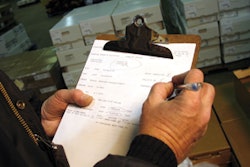July 10--LAKE PLACID -- The State Comptroller's Office says the Olympic Regional Development Authority needs better financial planning to deal with millions of dollars in budget shortfalls.
An audit released by State Comptroller Thomas P. DiNapoli said ORDA relies on loans and outside contributions to cover cash shortages and has borrowed to cover its basic operating costs, including payroll.
IN THE RED
In the last reported fiscal year -- April 1, 2013, to March 31, 2014 -- ORDA spent $40.4 million and took in $39.7 million.
From April 1, 2010, through March 31, 2013, ORDA's losses totaled $4.2 million on a cash basis, the audit revealed. But when depreciation, accounts receivable and post-employment benefits due to its employees were added, the agency's losses totaled $45 million.
In some cases, other state agencies paid ORDA's bills, including $1.5 million of capital lease payments that the agency had not paid since December 2008.
"ORDA's continuing struggles to maintain fiscal balance show that the authority needs to explore new ways to save costs and commit to sound financial planning going forward," DiNapoli said in a news release.
"ORDA needs to develop a realistic and detailed multi-year financial plan to build its cash reserves and maintain operations for the economic benefit of local communities, as well as the tens of thousands of people who enjoy its attractions."
'ADDRESSING CONCERNS'
ORDA spokesman John Lundin told the Press-Republican on Wednesday that the organization has just finished reviewing the findings in the audit.
"We've been working with the (State) Division of Budget and working on programs to address many of the recommendations in the audit," he said.
"The overall goal is to generate additional revenue and capital, with more revenue at ORDA's venues and more energy-efficient operations."
NO CAPITAL FUND
ORDA operates the Whiteface and Gore Mountain ski centers in the Adirondacks, the Olympic facilities in Lake Placid and the Belleayre Ski Area in the Catskills.
Most of its revenue is earned November through March, in the form of fees for skiing, skating and other activities.
State law requires ORDA to establish a fund for capital improvements and major repairs to the Olympic facilities, with 25 percent of profits each year deposited into the fund.
But ORDA had no profits from operations and no balance in the fund, the audit showed.
As a consequence, ORDA is dependent on the state and other public entities for capital contributions and grants.
ORDA has maintained a $7 million private line of credit, which it calls on to fill periodic funding shortfalls in operating revenues and to fund projects while it awaits payment of Empire State Development Corp. grant funding.
State auditors studied ORDA's revenue stream, particularly corporate sponsorships, and said the authority could take additional action to increase its income.
SPONSOR, BIDDING ISSUES
The auditors found:
--In one sponsorship with a vehicle manufacturer, ORDA receives use of up to 12 vehicles for three years at a value of $219,627 over that time. In return, ORDA provides tickets to its venues plus advertising and condominium use at an estimated value of $381,000 per year.
--ORDA claimed it used $36,000 in hotel stays received from a sponsor but wouldn't provide information documenting that the use was for ORDA business purposes.
--Three of the seven sponsors reviewed received more stays at the ORDA-leased condominium than designated in their agreements, including one given 45 excess stays during the audit period.
In total, the three sponsors received an additional 54 nights, valued at $13,500, over their agreed allotment for the three fiscal years ended March 31, 2013.
--ORDA officials did not request or receive $12,000 worth of free beverages due the organization through a sponsorship agreement at Gore.
DiNapoli's auditors also reviewed a sample of 29 procurements totaling $8.2 million, finding 11 of them, totaling $427,000, were not competitively bid.
TOP-TO-BOTTOM REVIEW
DiNapoli is recommending that ORDA:
--Develop a more accurate method for estimating expense and revenue amounts in its multi-year financial plan to ensure that budgets are balanced, operating expenses are closely scrutinized during the year and estimates are reviewed to determine they are still valid.
--Maintain required support for budget assumptions and calculations.
--Conduct a top-to-bottom review of ORDA's organization and spending to identify how to curb costs.
--Award contracts on a competitive basis and fully document any waivers, including the reason for the decision.
--Establish and follow procedures for corporate sponsorships that, at a minimum: evaluate whether a sponsorship is beneficial for ORDA, ensure that all in-kind-trade items are received and used for an ORDA business purpose and ensure that ORDA does not compensate sponsors beyond the terms of their agreements.
RESPONSE TO AUDIT
ORDA Director of Finance Padraig Power responded to the state audit with detailed explanations.
"ORDA goes through an arduous process to determine the most accurate revenue/expense numbers possible; however, certain weather and operating conditions may affect the overall outcome of any given financial year," he wrote.
"ORDA agrees with this recommendation and is continually looking for cost-containment opportunities within the framework of its business and the economy."
He said ORDA has been in contact with Empire State Development Corp. and has obtained the funds owed that were cited in the audit.
"ORDA has and continues to award contracts on a competitive basis in accordance with its procurement guidelines and protocols."
He said ORDA has the line of credit to supplement seasonal cash-flow issues and that future uses will be documented more stringently, as recommended in the report.
The original line of credit was not put out to bid, Power said, but numerous banks were contacted to get possible terms, and those institutions would not extend credit to an organization with potential financial struggles.
That's why an alternative lender was used for the line of credit, Power said.
READ THE REPORT
For a copy of the report, including ORDA's response, visit: http://tinyurl.com/k2yy3up
Copyright 2014 - The Press-Republican, Plattsburgh, N.Y.


![Pros To Know 2026 [color]](https://img.sdcexec.com/mindful/acbm/workspaces/default/uploads/2025/08/prostoknow-2026-color.mduFvhpgMk.png?auto=format%2Ccompress&bg=fff&fill-color=fff&fit=fill&h=100&q=70&w=100)



